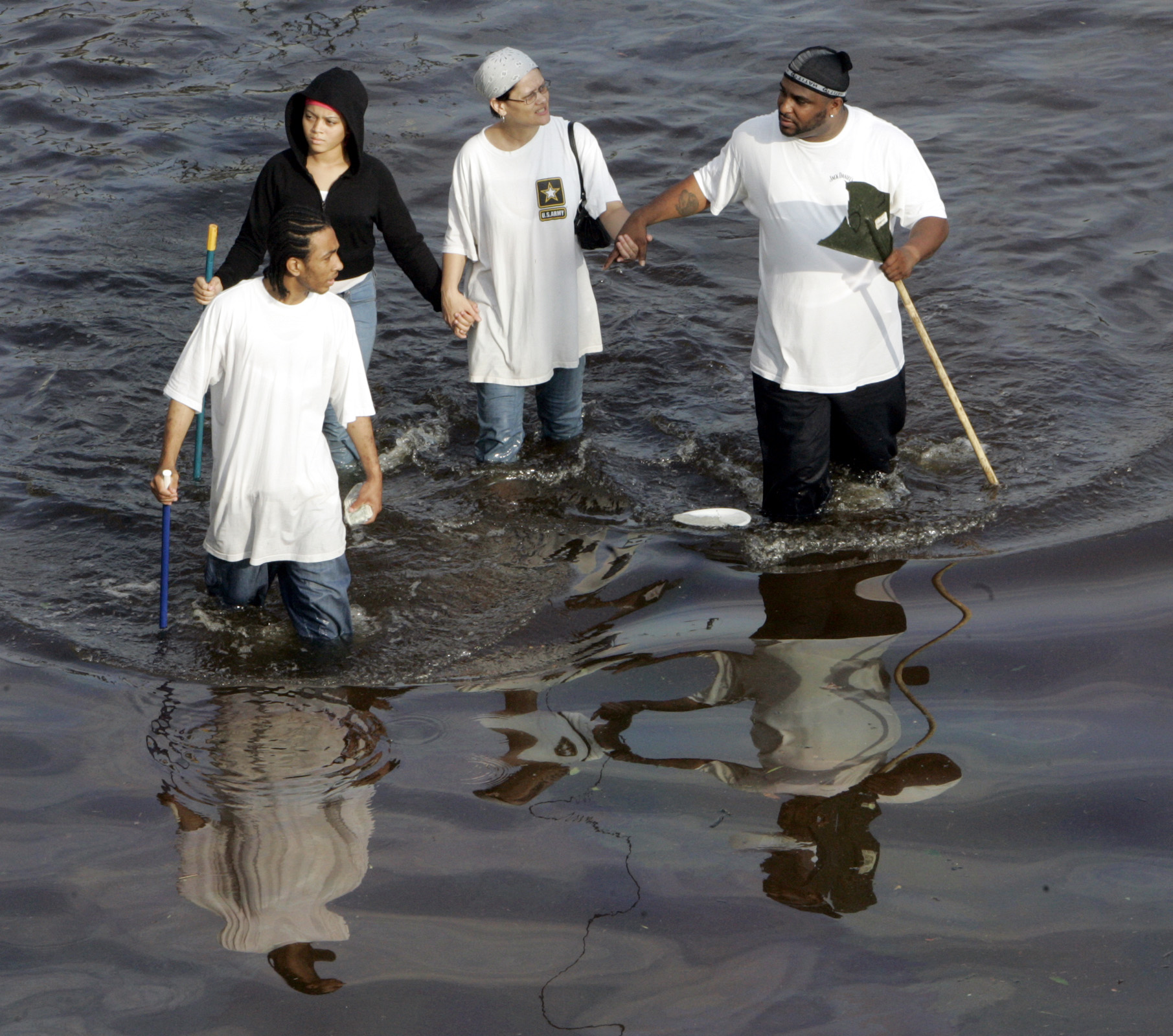WASHINGTON — It was 10 years ago Saturday that Hurricane Katrina pounded the city of New Orleans with devastating rain that broke the city’s levies, causing massive flooding.
Just a few days before the storm hit, Scott Cowan, who was then the president of Tulane University, welcomed the class of 2009 to campus. He then told the thousands of students and families to turn around and get out.
“I said ‘Now that you’re here, you’re going to have to leave’,” said Cowan, author of The Inevitable City: The Resurgence of New Orleans and the Future of Urban America. He was standing in shorts and a T-shirt, and left after speaking for seven minutes to help evacuate his students.
Almost 2,000 people were killed, and thousands more were left without homes by the time the storm left. Cowan said that the destruction may have given the city an opportunity to grow that wouldn’t have otherwise had.
“In many ways, Katrina wiped the slate clean,” He said.
“In many ways, the city is stronger and better today than it was before the storm. We always were an iconic city, and we’re still an iconic city known for our music, our language, our food, our architecture. So those things are still intact.”
Cowan said that problems in areas like public education, the levy system, health care and ethics reform were all spotlighted in the wake of Katrina — allowing the city to properly deal with the issues it had been facing.
In the decade since Katrina, Cowan sees lots of improvements.
“I think in 10 years, we’ve surprised ourselves with the progress we’ve made.”
However, there is still work to be done for New Orleans to elevate its image outside of being a party city.
“We have at least another decade, if not two decades, of work still left to be done to really get to be a great city on all metrics, not just to be a fun city to be in.”






